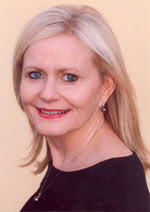
Zen Psychology does not begin with a concept of your self or your problems, but with an open mind. The intervention emerges within the sacred space of kind attention, deep listening, and questioning. When I meet a person who wishes to widen his or her inner space to let go of worry, we look at the experience and examine various paths together.
First of all we have to understand that worry is connected to fear which has its place in reality. I don’t think anybody in his or her right mind wishes to be completely fearless. At least after the fact of a close encounter we can appreciate when our internal warning signal is aligned with a red traffic light, preventing us to cross the street and become road kill. However, I don’t know anybody who appreciates being afraid for no good reason, or even just anxious about future events which is the definition of worry. Once we start worrying above and beyond what is needed for our survival, worry builds on worry and can spin out of control. The question is what to do about worrying when it makes no sense. In my opinion, the answers I have found are all good, but it is up to the individual to find which one or ones work the best.
1. Don’t Believe Everything You Think
Thinking is a wonderful tool, but when it is unclear or overused, it can also wreak havoc. The most intelligent person in the world can fall victim to muddled thinking. There are so many errors we can make, listed by Cognitive psychologists. The most fundamental remedy here is to ask simply, “Is it true what I think?” You can write down the dialectic arguments to gain clarity, but the mere question will already put some distance between you and your worry. If you overuse your thinking, you may have to learn to put down your tool that’s gone over to the dark side. Questioning the very act of thinking may be a good beginning, followed by relaxation techniques. If this does not change you profoundly, you might have to:
2. Desensitize Yourself
The story goes: an angry man went to a Zen master and complained about his wife’s horrible wrong-doing with righteous indignation. The master advised him to let himself become completely filled with hate - of course with his wife not in proximity. Then the angry man was supposed to ask himself if he feels better. He didn’t and gave up his anger altogether. Viktor Frankl would’ve called this intervention “paradox”. If you have the right constitution, you might want to worsen your worry and learn to tolerate the worst case scenario. It is possible that you notice right then, it isn’t the end of the world after all. On the other hand, you may have to become more curious and:
3. Learn From Your Anxiety
Your anxiety might just be your best teacher ever. In Zen Buddhism, which is integrated in Zen Psychology, there is no running away from your subjective experiences, but a turning towards and becoming present with them. While experiencing the worry, you might want to ask yourself what it wants to tell you and what its origin is. Learning about the experience while paying attention to it in a meditative way is putting further distance between you and the experience (see also Chapter 9 of my book www.AUnifiedTheoryofHappiness.com). It also informs you of the deeper obstacles that you need to face. Those who can use this remedy successfully come out stronger and wiser than ever. There is an upside to being forced to wrestle with your inner demons. However, most everybody must also train the brain to create new pathways and:
4. Become Mindful
The worried mind is accustomed to seeing only the negative, ignoring the rest of life which is actually an awe-inspiring spectacle of beauty, abundance, and boundless opportunity. Surely, all humans are bestowed with a negative bias by Mother Nature which is a propensity to react to and memorize a negative before a positive event.* In order to fully understand worry, we need to know that this bias is there because we encountered multiple physical threats in our evolutionary history but also potential competitors. We worry that others surpass us. Noticing the positive, love, and collaboration is way harder than noticing the negative, hatred, and envy. Becoming mindful means that we train our brain to notice our whole ordinary existence. Instead of homing in on threats, we need to home in on what is right in our life, which is the “little” things, such as that we are breathing, the beautiful sky, the flower in the crevice. What’s in your perception? New, more positive focal points are to cure you from worrying. If they don’t, you might have to:
5. Question Your Entire Value System
The worrier worries because she or he operates in the physical world in which everything is relative and hierarchical. It seems dismal. You can never be sure of things. It is easy for humans to suffer as we are so aware of the uncertainty in life. The most powerful remedy here is to question whether this relative existence matters as much as we are tempted to believe. What if Mother Nature bestowed us with the gift of a negative bias while there is no hierarchy in reality? What if we are all special and interconnected within one amazing whole called life? The most powerful remedy to worrying may just be the access of the absolute dimension in which we relate and realize, there’s nothing further to accomplish. Life’s a gift. When we realize how great a gift, we may just relax into this reality and celebrate whenever possible.
Originally posted in Psychology Today: http://www.psychologytoday.com/blog/unified-theory-happiness/201403/what-you-worry
*http://www.psychologytoday.com/articles/200306/our-brains-negative-bias and
http://psychology.uchicago.edu/people/faculty/cacioppo/jtcreprints/ilsc98.pdf











